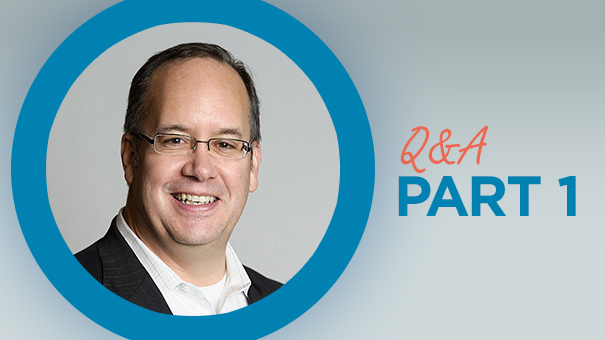
Q: Worldwide Clinical Trials is known for its operations around the world—in the U.S., the U.K., in Western and Eastern Europe, in Russia, in Taiwan and other countries in the Asia-Pacific region, and in South America. Why is this global reach important?
Peter Benton: Our customers rely upon our global footprint. Several factors are responsible for our global reach. One, we go where the patients are, and where standards of care facilitate patient access. It’s expensive to run clinical research, so we carefully identify and target the most likely populations who will need the treatment we are researching. This has been accentuated as companies increasingly address therapy toward patients with unique phenotypes that may be widely dispersed. In some cases, a treatment can only be marketed post trial, in a certain country if clinical research leading toward market authorization has been performed in that country. In other cases, we’re researching a treatment for an ailment or disease that especially affects a particular demographic, or one where a unique treatment history is a requirement for eligibility. We go where the patients are.
Additionally, an extensive global footprint indirectly facilitates healthcare delivery in the context of clinical research. For example, there are also differences in standards of healthcare around the world, with marked differences in the frequency of referral from community-based physicians to centers which specialize in clinical care, as well as research. In some areas, CRO clinical researchers like Worldwide can offer opportunities in the context of research for world-class healthcare that would otherwise be difficult for people to access, making it more attractive to join our trials. Data consistently suggest that participation in clinical research facilitates coordination and overall quality of healthcare that a patient receives, regardless of treatment group assignment.
Q: How does this global footprint give Worldwide a competitive edge?
Peter Benton: Essentially, Worldwide has a global knowledge base of experience and capability. All staff within Worldwide are not only linguistically proficient, they are fully acquainted with the culture and standards of care within each country where they are assigned. Around the world, we’re familiar with patient populations, referral patterns, local regulations, competitive activity, commercial markets, customers and sponsors, key investigators, and thought leaders in the fields of Central Nervous System disorders, psychiatry, cardiovascular health, immune mediated inflammatory disorders, as well as other specialized therapeutic areas. Although the prevalence of any disease may vary geographically, opportunities for therapeutic intervention are global and our sponsors are global, and we can’t be a local provider. CRO companies have to play in the global space while maintaining the flexibility and entrepreneurial agility to aggressively and relentlessly pursue what’s best for our customers.
Q: With so many operations, how does Worldwide maintain a unified company culture?
Peter Benton: Communication is key. It’s shocking when we hear how many other CRO companies don’t have an open dialogue with their employees. At Worldwide, we’re determined to interact with our employees around the world, and we exploit a number of different channels to facilitate that process. I hosted our last quarterly all-hands meeting from our office in Warsaw, Poland, where I also had the time and opportunity to meet personally with employees there to discuss the landscape in Eastern Europe—to learn what challenges were standing in our way, what strengths and skills can be shared within our organization, and what resources are needed for success. It’s not just about getting my “leadership” message out; it’s about having a two-way dialogue across all levels of the organization. And everyone benefits—for example, in Poland I learned more about regulatory timelines in Eastern Europe, and I was able to use that information just a few days later in a discussion with a customer.
Q: How does Worldwide keep communication open?
Peter Benton: We’re trying hard to speed up communication—as an article in Harvard Business Review highlighted, distortion of speed is plaguing companies across the country, slowing down our ability to make quick decisions. From a cultural perspective, at Worldwide we’re trying to keep our organization as flat as possible, and as open as possible. While it’s important to have a chain of command, we want people to feel free to speak up at any issue and provide us with honest feedback. We find that career progression and good pay are important motivators, but having meaningful work, strong communication and collaboration, and people on your team who are just as committed as you are – that is much more motivating. Building upon that strong, high-performing culture is how we all are working toward success at Worldwide, for our employees, our customers and our shareholders.


